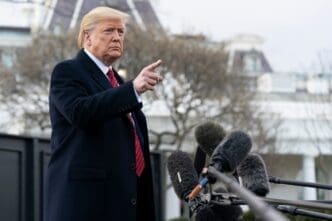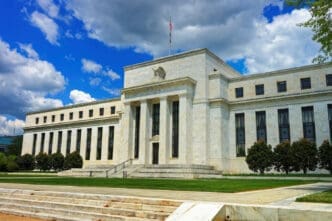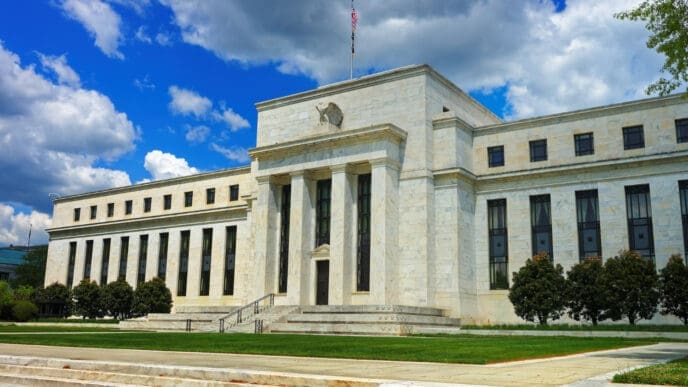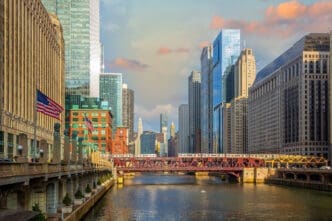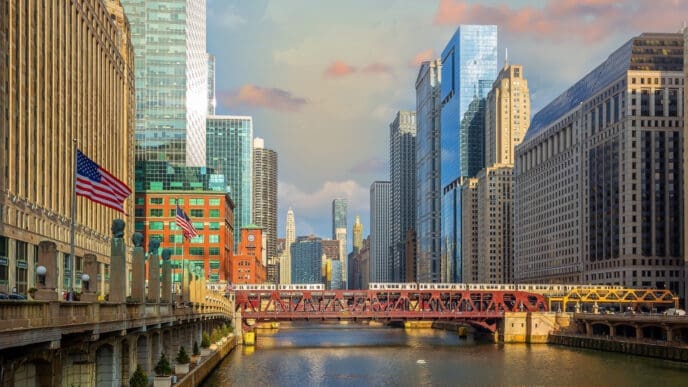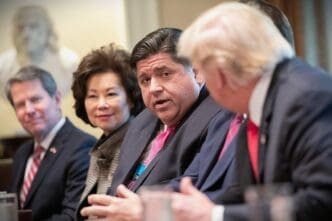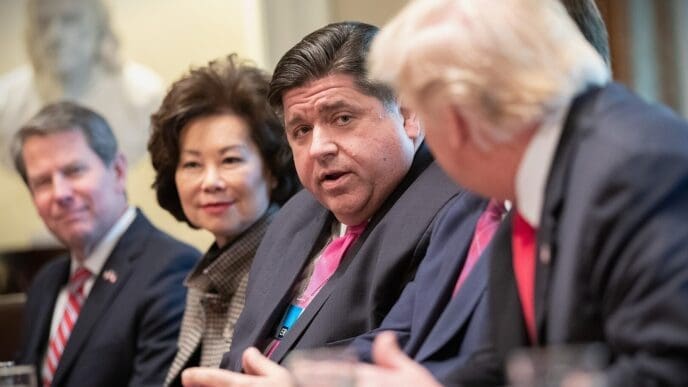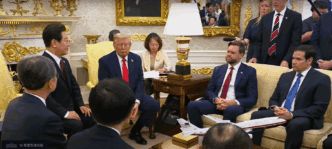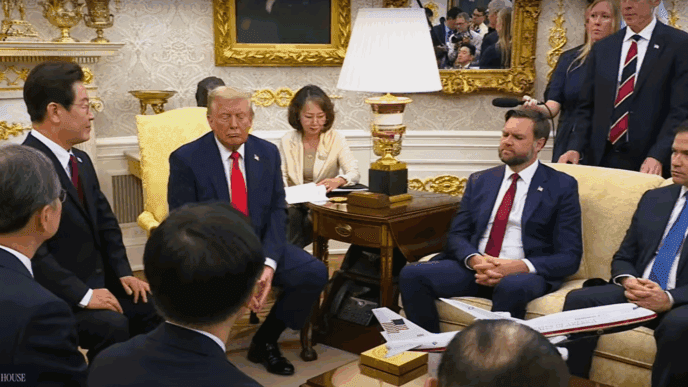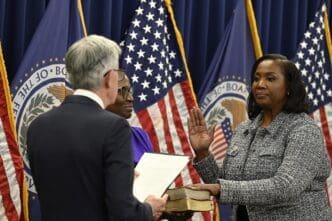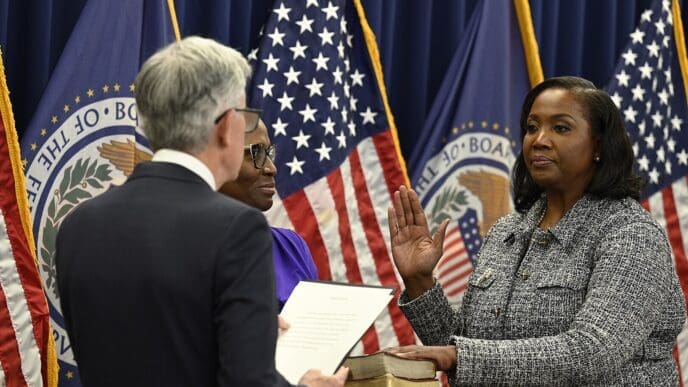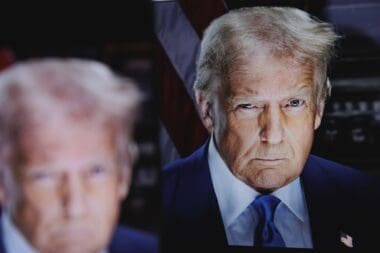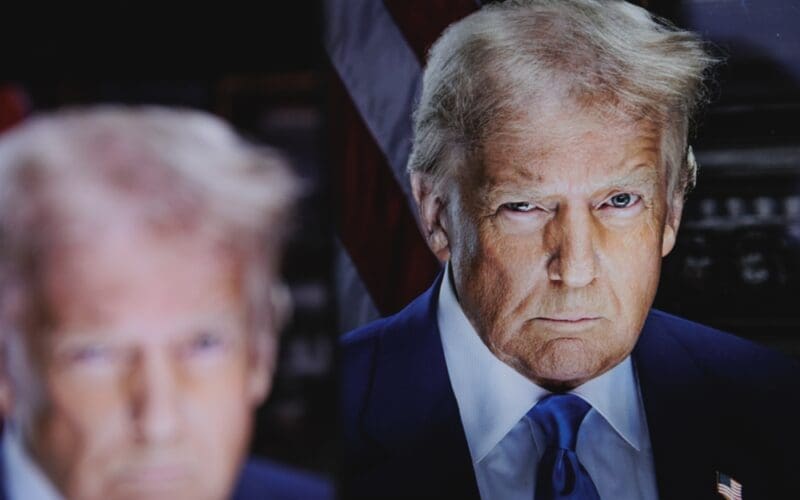Executive Summary
- President Trump suggested the FCC revoke broadcast licenses for ABC News and NBC News due to alleged bias, calling them an “actual threat to our Democracy.”
- Political scientists widely criticized Trump’s remarks, stating they disregard press freedom, democratic norms, and the First Amendment.
- Experts clarify that political bias is not grounds for license revocation, and the FCC has no plans to act, with any such attempt facing significant legal challenges.
The Story So Far
- Donald Trump’s suggestion to revoke broadcast licenses for ABC News and NBC News is consistent with his long-standing pattern of accusing mainstream media of bias and spreading “FAKE NEWS.” However, experts widely view such threats as undermining democratic principles and a free press, noting that the First Amendment protects broadcasters and that political bias is not a legal basis for the FCC to revoke licenses, particularly since the Fairness Doctrine was abolished decades ago.
Why This Matters
- President Trump’s suggestion to revoke broadcast licenses for ABC and NBC News, while legally untenable and widely seen as undermining First Amendment protections for a free press, signals a persistent challenge to democratic norms and could inspire future attempts to weaponize federal power against perceived media bias, despite the FCC’s current lack of intent to act.
Who Thinks What?
- Donald Trump asserts that ABC News and NBC News are highly biased against him, function as an “arm of the Democrat Party,” and are an “actual threat to our Democracy,” suggesting their broadcast licenses should be revoked by the FCC.
- Political scientists widely view Donald Trump’s suggestions as a disregard for the First Amendment, a free press, and established democratic norms, characterizing them as totalitarian or autocratic behavior, and clarifying that political bias is not grounds for license revocation.
- The Federal Communications Commission (FCC) currently has no plans to revoke the broadcast licenses of ABC News or NBC News, and any such attempt would face significant legal challenges based on First Amendment protections.
President Donald Trump has faced significant criticism from political scientists after suggesting that ABC News and NBC News could have their broadcast licenses revoked by the Federal Communications Commission (FCC) due to alleged bias. Trump articulated his views in a post on his Truth Social platform, describing the networks as “two of the worst and most biased networks in history” and an “actual threat to our Democracy,” remarks that have prompted concerns among experts about press freedom and democratic norms.
Trump’s Allegations Against Networks
In his Sunday Truth Social post, Trump claimed, without providing evidence, that ABC News and NBC News deliver “97% BAD STORIES” about him. He asserted that if this is the case, they function as an “arm of the Democrat Party” and, according to “many,” should have their licenses withdrawn by the FCC.
This latest commentary follows a long-standing pattern where Trump has frequently contended that much of the mainstream American media ecosystem is biased against him and disseminates “FAKE NEWS.” These claims have garnered support from many of his followers.
Newsweek reportedly sought comments from the White House, ABC News, NBC News, and the FCC regarding Trump’s statements, reaching out via email outside of regular office hours on Monday.
Expert Reactions and Concerns
Several political scientists have argued that Trump’s suggestions demonstrate a disregard for established American democratic norms and the principle of a free press.
Dafydd Townley, an expert on U.S. politics at the University of Portsmouth in the U.K., told Newsweek that Trump’s threat is “yet more evidence that this administration is adopting a totalitarian approach to governance as it ignores the rights to a free press as mandated in the First Amendment.” Townley further suggested this indicates continued efforts to “quash all dissenting opposition.”
Jonathan Turley, a professor at George Washington University, acknowledged media bias but cautioned against license revocation on X, stating it “would cross the Rubicon into censorship.” Turley advocated for greater competition as a solution, noting its current effectiveness.
Mark Shanahan, who teaches American politics at the University of Surrey in England, characterized Trump’s desire for media as “quiescent cheerleading” rather than a “watchdog to hold government to account.” He compared this approach to media environments seen in Russia, China, and historical fascist regimes, deeming it “not a sign of a healthy democracy.”
Professor D. Roderick Kiewiet, an expert in American political theory at the California Institute of Technology, clarified that political bias does not provide grounds for revoking broadcasting licenses. He noted that the FCC abolished the Fairness Doctrine approximately 40 years ago, allowing broadcasters considerable freedom within liability laws and journalistic practices.
Stanford University political scientist Professor Terry M. Moe stated that Trump’s accusations against the media are “inversions of the truth,” identifying Trump as “the real threat to democracy.” Moe asserted that Trump “seeks to unilaterally impose his personal will on all sectors of American society,” weaponizing federal power against dissenters, which he described as characteristic of autocrats.
FCC Stance and Legal Implications
Currently, there are no indications that the FCC plans to remove the broadcasting licenses of either ABC News or NBC News. Any attempt to strip a broadcaster of its license would almost certainly lead to a significant legal challenge, likely citing First Amendment protections.
It remains to be seen whether the FCC will face additional pressure from President Trump or his administration to alter its current position regarding these broadcast licenses.
President Trump’s call for the revocation of ABC News and NBC News’ broadcast licenses has ignited a debate over media freedom and the boundaries of presidential power. While his claims of media bias resonate with some supporters, political scientists universally view such threats as undermining democratic principles and the First Amendment. The FCC has not indicated any action, and any move to revoke licenses would likely face strenuous legal opposition.

